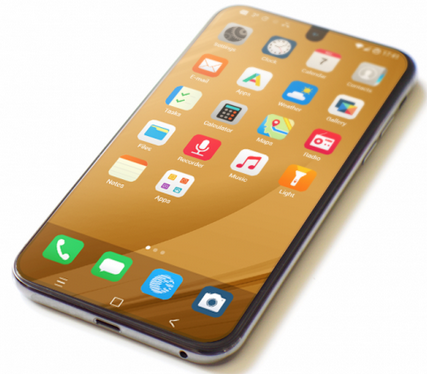I’m happy to weigh in, Gael!
…and I’ll start by weighing in on “the problem”: ‘Security’, ‘Convenience’, and ‘Privacy’ are all spectrums (spectra?), and one person’s “secure” is another person’s "insecure, and still another person’s “correct balance”. “Privacy” implies a “from whom?”, which again, is going to be different. A good friend of mine is certainly distrustful of his government, but trusts Google with basically every detail and opts in to every bit of their data collection…but doesn’t trust Facebook/Meta. One person’s “acceptably inconvenient” is another person’s “not worth the hassle”. There’s just going to be a lack of consensus, because everyone’s “sweet spot” is going to be different…and if we can’t agree on a problem scope, we won’t achieve true consensus on a solution. That said…
Desktop operating systems
I run Windows. It’s heresy, I know, and I’m not saying it should be a true recommendation, but W10 Privacy and Windows 10 Decrapifier help mitigate some of the more egregious, user-facing issues. I’d submit that those are some recommendations for users who need to run Windows-only software, rather than a recommendation for an OS directly. In terms of a truly security-focused OS, of course QubesOS is the first thing that came to mind, but I would pay to watch anyone attempt to explain the sandboxing paradigm to 99% of the end users for whom I provide tech support, let alone get any of them to use it. In practice, I’d probably say either Linux Mint or PCLinuxOS would be viable improvements for most people who are willing to sacrifice the ability to run Windows or MacOS Software for the sake of improving privacy.
This comes with a major caveat, though: Part of the problem with moving beyond Windows software is that the most common way of dealing with the loss of that software is to use cloud-based applications instead. It’s super easy to leave desktop software behind if the software ultimately runs on someone else’s computer…and while GNU/Linux and the BSDs can run browsers and LibreOffice well enough, if there aren’t enough desktop applications that rival Windows and OSX to do a good job, then running a desktop OS whose primary task is to run software on someone else’s computer defeats the purpose of running a privacy focused desktop OS…bringing me all the way back to why I’m still running Windows.
The rest of my points will be shorter, promise =).
Web browsers
I’m still a Firefox fan. I run Opera, too (old habits die hard; been using them since they still used the Presto engine), but Firefox, for all its flaws, is still the only browser that isn’t window dressing on Webkit/Blink, and I think that’s important.
Of course, any browser’s security is going to quickly end up devolving into a discussion about extensions. My favorite one to use is AdNauseam, which doesn’t deal with browser fingerprinting or any of the other functions…but it does my favorite thing which is 1.) hide ads, and 2.) click on them. I don’t see the ads, but every ad is clicked, meaning that websites get revenue and the tracking that does happen is useless, because I ‘click’ everything.
VPNs (Virtual Private Networks)
I have an inherent distrust of commercial VPN services, plus I think that they end up being more snake oil than anything else. I VPN home and then use RDP to do whatever browsing I was going to do from my home computer. Is it any more or less safe than using Surfshark or NordVPN or NortonVPN or ExpressVPN? I mean, if I were really pressed to point to one I’d use…I’d probably go to a company whose primary product is ehm…automated, high bandwidth, Linux Distro Downloading…but that’s because the people interested in them tend not to be interested in VPN traffic, and vice versa. Again, ‘scope definition’ starts getting messy…
Email software and services
Murena.io, of course =). In addition, I think ProtonMail seems to strike a decent balance for most, although the relatively small sizes for free accounts might be a barrier to those used to the functionally-infinite mailbox sizes offered by Google and Yahoo. If we’re talking about self-hosting, I’ve had fairly good success with Mailcow, which I like because it is actually mostly-compatible with Activesync, which is extremely helpful if one is running a mail server for those who aren’t yet running /e/OS on their phone.
In terms of a mail client…Two recommendations, problematically, neither compatible with Linux: Postbox and eM Client. Both have pretty-good-for-commercial-products privacy policies, but we’re back to the balancing act - it’s difficult to recommend Claws or Thunderbird if they’re limited to POP and IMAP services, so it’s a bit of a catch-22 to recommend a privacy-centric mail client independent of a murena.io account to back it.
Office software and services
I mean, LibreOffice is the 800lb. gorilla in the room on the desktop side of things, though I submit that from a purely privacy-centric side of things, the still-existent WordPerfect does way less snooping and cloud-integration drama than Microsoft365 or Apple iWork does. That being said, if we’re looking on the cloudy side of things, OnlyOffice and Collabora seem to be the names worth mentioning, and honestly, the Murena-hosted instances are the only ones I’m aware of that have any meaningful amount of privacy, unless one is going to self-host (and those are not fun to self-host if you’re a beginner or intermediate in the space).
Productivity software and services
Depends a bit on what one considers ‘productivity’ software. Most discussions on the topic tend to center around Word Processors and Spreadsheets, maybe a database or presentation title, but most of those are already covered. If there’s another category worth addressing, I submit it’s worth describing.
Payment & financial software and services
Well…I really don’t think there’s much to be said here. Money has been tracked more meticulously than anything else going back to the Greeks and Egyptians and Assyrians; if you’re exchanging government-backed money or accepting Visa or Mastercard…you’re not getting privacy.
That said, if we’re stretching it a bit, there’s Firefly and ActualBudget, and a few open source point-of-sale software options, though again, i’m not sure how much privacy is involved once credit card companies start getting involved.
Cloud storage options
pCloud seems to be getting a bit of traction, and Mega has operated in the space for some time as well. Of course, Murena does this also, though we start running into scope definition problems for ‘privacy’ in this context.
Enhanced privacy settings for commercial Android or iOS devices
Actually, can’t help with this one…I just run /e/ =).
Password managers
I may move to VaultWarden/BitWarden soon, but for years I’ve been using Team Password Manager with great success. As much as I’m not big on the developer’s use of the Ioncube Loaders, it’s solid, reasonably priced, has 2FA/F2B integrated, and I haven’t seen any sketch internet traffic from it…
DNS (Domain Name System) services
NextDNS seems like it’s got a solid privacy policy, though I personally run AdGuard Home and forward my traffic to Quad9, which is hopefully better than using my ISP or Google DNS.
Good practises for everyone
Poison the well. ‘No information’ is extremely difficult to consistently maintain; ‘wrong information’ is way easier, and makes you a far less lucrative target.

